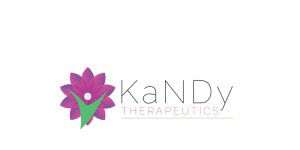Press Release.
U.S. Food and Drug Administration (FDA) accepts New Drug Application for elinzanetant
- The New Drug Application (NDA) for elinzanetant, an investigational compound for the treatment of moderate to severe vasomotor symptoms associated with menopause, is based on the positive data from three Phase III studies OASIS 1, 2 and 3
- Elinzanetant is the first dual neurokinin-1 and 3 (NK-1 and 3) receptor antagonist, in late-stage clinical development for the non-hormonal treatment of moderate to severe VMS associated with menopause, administered orally once daily
“If approved, elinzanetant will offer a new non-hormonal option to women seeking treatment for moderate to severe vasomotor symptoms and we look forward to the review by the agency.”
“The NDA acceptance of elinzanetant by the FDA marks a significant milestone in our efforts to advance menopause care for women in the U.S.,” said Christine Roth, Executive Vice President, Global Product Strategy and Commercialization, Member of the Pharmaceutical Leadership Team at Bayer.“If approved, elinzanetant will offer a new non-hormonal option to women seeking treatment for moderate to severe vasomotor symptoms and we look forward to the review by the agency.”
The NDA application is based on the positive results from the OASIS 1, 2 and 3 Phase III studies evaluating the efficacy and safety of the investigational compound elinzanetant versus placebo. Findings from OASIS 1 and 2 were published in August 2024 in JAMA.1 Detailed results of the Phase III study OASIS 3 providing supporting efficacy and additional long-term safety data were presented at The Menopause Society (TMS) annual meeting in September 2024.
Bayer is continuing to submit applications for marketing authorizations of elinzanetant to further health authorities as well.
About the Elinzanetant clinical development program
The Phase III clinical development program of elinzanetant, OASIS, currently comprises four Phase III studies: OASIS 1, 2, 3 and 4. OASIS 1 and 2 investigated the efficacy and safety of elinzanetant administered orally once daily in women with moderate to severe VMS associated with menopause over 26 weeks and randomized 396 and 400 postmenopausal women between 40 and 65 years across 184 sites in 15 countries. Patients in the elinzanetant arm received a 120 mg dose of elinzanetant once daily for 26 weeks and patients in the control arm received a matching placebo once daily for 12 weeks, followed by elinzanetant 120 mg dose for 14 weeks. OASIS 3 investigated the efficacy and safety of elinzanetant for the treatment of vasomotor symptoms over 52 weeks in postmenopausal women and randomized 628 postmenopausal women between 40 and 65 years across 83 sites in 9 countries. The OASIS 4 study is an expansion of the clinical Phase III program and investigates the efficacy and safety of elinzanetant in women with moderate to severe VMS caused by endocrine therapy for treatment or prevention of breast cancer.
In addition to the OASIS program, Bayer is conducting NIRVANA (NCT06112756), an exploratory Phase II randomized, parallel-group treatment, double-blind study. The primary objective is to explore the efficacy of elinzanetant on sleep disturbances associated with menopause (SDM) as determined by polysomnography (PSG). PSG is a validated method to study sleep and underlying causes of sleep disturbances. Additional objectives include exploring the efficacy of elinzanetant on SDM as determined by patient-reported outcomes and further evaluating the safety of elinzanetant.
About Elinzanetant
Elinzanetant is the first dual neurokinin-1 and 3 (NK-1 and 3) receptor antagonist, in late-stage clinical development for the non-hormonal treatment of moderate to severe VMS associated with menopause, administered orally once daily. Elinzanetant may address moderate to severe VMS by modulating a group of estrogen sensitive neurons in the hypothalamus region of the brain (the KNDy neurons) which, with the decrease of estrogen, become hypertrophic and lead to a hyperactivation of the thermoregulatory pathway, consequently disrupting body heat control mechanisms resulting in VMS. Based on key secondary endpoints of OASIS 1 and 2, Elinzanetant may also decrease sleep disturbances associated with menopause.
About Vasomotor Symptoms
Vasomotor symptoms (VMS; also referred to as hot flashes) result from hyperactivation of the thermoregulatory pathway mediated by hypertrophy of the KNDy neurons. This is due to a decrease of estrogen, which can result from the progressive reduction of ovarian function due to natural menopause or medical intervention by bilateral oophorectomy or endocrine therapy.
VMS are reported by up to 80% of women at some point during the menopausal transition and are one of the leading causes for seeking medical attention during this phase of a woman’s life. Over one-third of menopausal women report severe symptoms, which can last 10 years or more after the last menstrual period, with relevant impact on quality of life.
VMS may also be caused by endocrine therapy, for the treatment or prevention of breast cancer, impacting quality of life and treatment adherence. For these women, there are currently no approved treatment options.
About Menopause
By 2030, the global population of women experiencing menopause is projected to increase to 1.2 billion, with 47 million women entering this phase each year. Menopause is a transitional phase in women’s lives, related to the progressive decline of ovarian function. It usually occurs in women during their 40s or early 50s. It can also be the result of surgical or medical treatment such as breast cancer treatment. The hormonal decline can lead to various symptoms which can substantially affect a woman’s health, quality of life, healthcare utilization and work productivity. The most frequently reported and disruptive symptoms during the menopausal transition are VMS, sleep disturbances and mood changes. Addressing these symptoms is key to maintaining functional ability and quality of life in menopause which is highly relevant from both a healthcare and socio-economic perspective.
About Women’s Healthcare at Bayer
Women’s Health is in Bayer’s DNA. As a global leader in women’s healthcare Bayer has a long-standing commitment to delivering science for a better life by advancing a portfolio of innovative treatments. Bayer offers a wide range of effective short- and long-acting birth control methods as well as therapies for menopause management and gynecological diseases. Bayer is also focusing on innovative options to address the unmet medical needs of women worldwide and to broadening treatment choices such as in menopause. Additionally, Bayer intends to provide 100 million women per year in low-and-middle income countries by 2030 with access to family planning by funding multi-stakeholder aid programs for capacity building and by ensuring the supply of affordable modern contraceptives. This is part of the comprehensive sustainability measures and commitments from 2020 onwards and in line with the Sustainable Development Goals of the United Nations.
About Bayer
Bayer is a global enterprise with core competencies in the life science fields of health care and nutrition. In line with its mission, “Health for all, Hunger for none,” the company’s products and services are designed to help people and the planet thrive by supporting efforts to master the major challenges presented by a growing and aging global population. Bayer is committed to driving sustainable development and generating a positive impact with its businesses. At the same time, the Group aims to increase its earning power and create value through innovation and growth. The Bayer brand stands for trust, reliability and quality throughout the world. In fiscal 2023, the Group employed around 100,000 people and had sales of 47.6 billion euros. R&D expenses before special items amounted to 5.8 billion euros. For more information, go to www.bayer.com.
Find more information at https://pharma.bayer.com/
Follow us on Facebook: http://www.facebook.com/bayer
Follow us on LinkedIn: Bayer | Pharmaceuticals
kw (2024-0157E)
Forward-Looking Statements
This release may contain forward-looking statements based on current assumptions and forecasts made by Bayer management. Various known and unknown risks, uncertainties and other factors could lead to material differences between the actual future results, financial situation, development or performance of the company and the estimates given here. These factors include those discussed in Bayer’s public reports which are available on the Bayer website at www.bayer.com. The company assumes no liability whatsoever to update these forward-looking statements or to conformthem to future events or developments.
_________________________
1 https://jamanetwork.com/journals/jama/fullarticle/2822766
Contacts
Contact for US media inquiries:
Courtney Ambrosi, phone 1 (908) 798-1107
Email: courtney.ambrosi@bayer.com
Contact for global media inquiries:
Katja Wiggers, phone +49 30 221541614
Email: katja.wiggers@bayer.com


